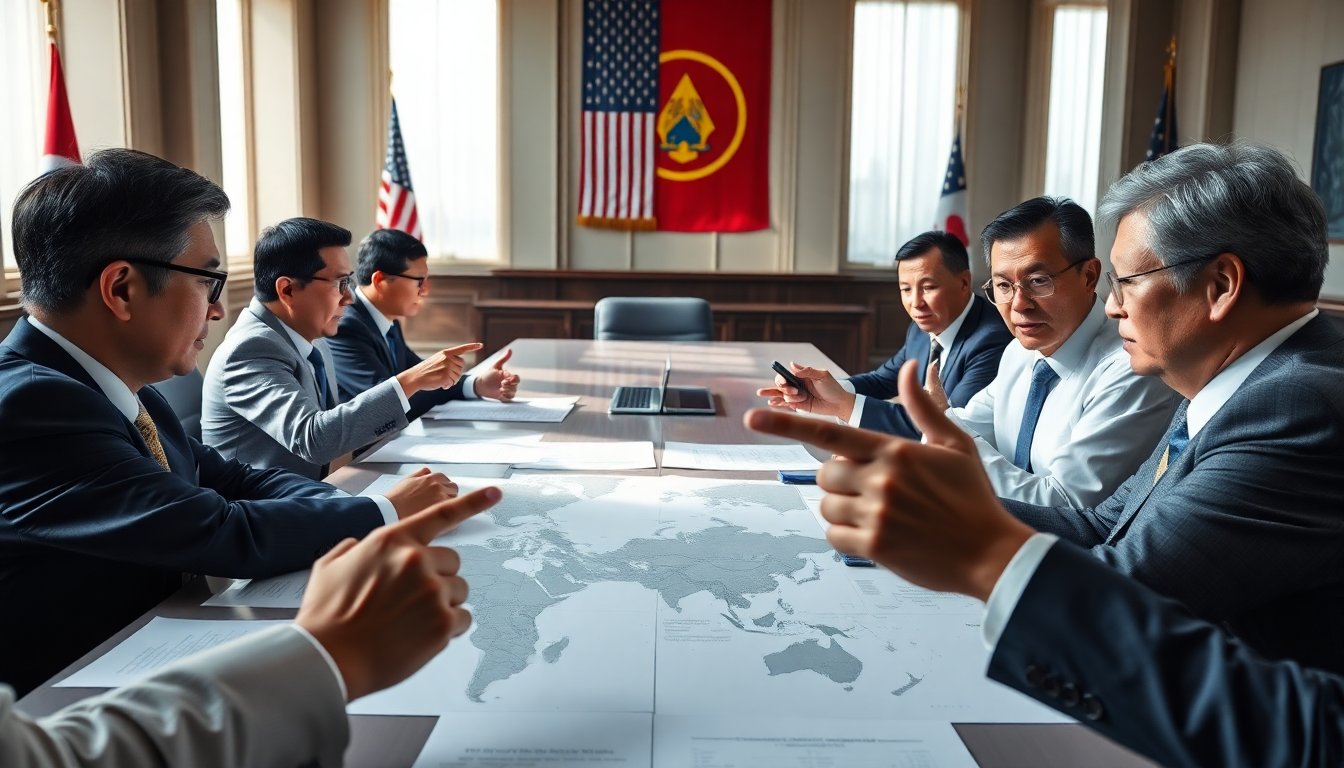Table of Contents
The recent diplomatic tensions between South Korea and the United States have captured significant attention, particularly following an incident involving the detention of skilled workers in Georgia. This situation raises questions about immigration enforcement and highlights broader implications for trade and diplomatic relations between the two nations. As the geopolitical landscape evolves, understanding these nuances is crucial for stakeholders and citizens alike.
Incident Overview and Immediate Reactions
The incident at the heart of this diplomatic turmoil occurred when immigration agents raided a joint venture between South Korean companies, Hyundai Motor and LG Energy Solution, in Georgia. This action resulted in the detention of dozens of engineers and subcontractors, primarily South Korean nationals. South Korea’s Foreign Minister, Cho Hyun, expressed his deep concern over the situation during a meeting with US Secretary of State Marco Rubio. He emphasized the emotional impact of these arrests on the Korean community, highlighting that the detained workers were in the US to contribute positively, aligning with the current administration’s goals of revitalizing American manufacturing.
In response, President Donald Trump agreed to South Korean requests regarding the treatment of the workers, ensuring they would not be handcuffed during their detention. Furthermore, the US administration is considering creating a new visa category to prevent similar issues in the future. This response reflects an understanding of the critical role that these skilled workers play in fostering economic ties between the two countries.
Diverging Narratives and Implications
The differing accounts of the meeting between Cho and Rubio, as reported by their respective ministries, underscore the complexities of the situation. South Korea’s statement described the pain and shock felt within its community, while the US perspective focused on procedural and policy-oriented responses. This divergence not only reflects immediate concerns surrounding the incident but also foreshadows potential long-term implications for US-South Korea relations.
The incident has emerged as a significant diplomatic flashpoint for President Lee Jae-myung, marking one of the most challenging moments of his tenure since taking office in June. As both countries navigate this turbulent period, the potential for a reevaluation of their trade and investment agreements hangs in the balance. The hope is that constructive dialogue can lead to resolutions that satisfy both parties and reaffirm their commitment to mutual cooperation.
The Broader Context: Economic and Diplomatic Considerations
This incident occurs against a backdrop of broader economic and diplomatic dynamics. The partnership between South Korea and the United States has historically been characterized by strong trade ties and mutual interests in various sectors, including technology and manufacturing. However, as global competition intensifies and domestic sentiments regarding immigration shift, incidents like this could challenge the foundations of their alliance.
Moving forward, it is essential for both nations to engage in open discussions to address the underlying issues contributing to such incidents. Strengthening communication channels and ensuring that the contributions of skilled workers are recognized and protected will be critical in maintaining a positive trajectory in their diplomatic relationship. The potential creation of a new visa category may serve as a proactive measure to alleviate concerns and foster a more collaborative environment.


